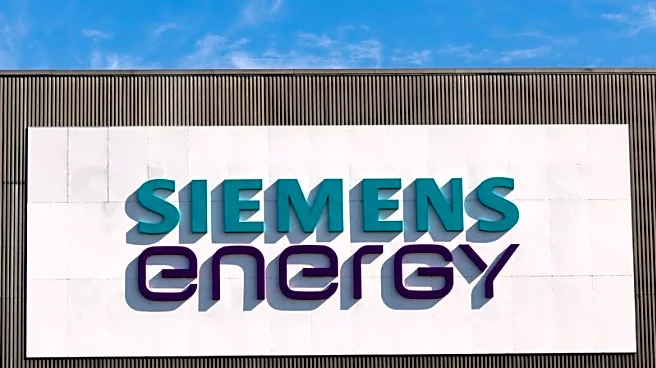What's Happening?
Marco Fuchs, CEO of the German aerospace and defense company OHB, has announced plans to challenge the proposed merger between Airbus, Thales, and Leonardo. Fuchs expressed concerns that the merger could
limit competition within the European space industry. OHB often competes for large contracts against these companies and has subcontracted Thales Alenia Space for critical components on major missions. Fuchs believes the merger could negatively impact OHB's supply chain and value creation, particularly in relation to European Space Agency business. The merger is expected to undergo regulatory and antitrust approvals, with completion anticipated by 2027. In response, OHB is ramping up production capacity and has made strategic acquisitions to bolster its manufacturing capabilities.
Why It's Important?
The merger between Airbus, Thales, and Leonardo could significantly alter the competitive landscape of the European space industry. If approved, the new entity may attract large government contracts, potentially disadvantaging smaller companies like OHB. This could lead to reduced competition and innovation within the sector. OHB's proactive measures, including acquisitions to strengthen its supply chain, highlight the potential challenges smaller firms face in maintaining competitiveness. The outcome of this merger could influence future industry dynamics, affecting contract allocations and the strategic direction of European space initiatives.
What's Next?
As the merger undergoes regulatory scrutiny, OHB will continue to position itself to compete effectively against the new entity. The company has already increased its production capacity and completed acquisitions to enhance its manufacturing capabilities. These moves are aimed at safeguarding its supply chain and ensuring a level playing field. The antitrust process will be crucial in determining the merger's impact on competition. Stakeholders, including European VC investors and space industry players, will closely monitor developments, as the merger could reshape the industry's future.
Beyond the Headlines
The merger raises broader questions about the balance between consolidation and competition in the space industry. While larger entities may benefit from economies of scale and increased bargaining power, smaller companies could struggle to compete. This dynamic could affect innovation and the diversity of solutions available in the market. The regulatory process will need to address these concerns to ensure fair competition and the continued growth of the European space sector.











